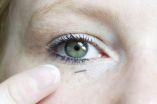(Press-News.org) PHILADELPHIA –This week, a strategic roadmap to help to the nation's health care system cope with the impending public health crisis caused Alzheimer's disease and related dementia will be published in Alzheimer's & Dementia: The Journal of the Alzheimer's Association. The plan aims to link the latest scientific findings with clinical care and bring together patients, families, scientists, pharmaceutical companies, regulatory agencies, and advocacy organizations behind a common set of prioritized goals. The consensus document is the outcome of a June meeting of leading Alzheimer's researchers, advocates and clinicians, who gathered as part of the Marian S. Ware Alzheimer Program at the University of Pennsylvania.
Today, 5.4 million people are living with the disease, and more than 15 million Americans are caring for persons with Alzheimer's and other dementias, according to the Alzheimer's Association. Alzheimer's disease is the sixth-leading cause of death in the United States and the only cause of death among the top 10 in the United States that cannot be prevented, cured, or even slowed.
"Our plan aims to provide good quality care for affected patients and families, advance our understanding of the pathophysiology and natural history of AD and other dementias, develop effective treatments to slow or prevent these diseases, and translate scientific advances successfully into policy and practice," the authors wrote.
The experts developed a prioritized and integrated set of recommendations after meeting in June at Penn. Four workgroups, focusing on Biomarkers, Clinical Care and Health Services Research, Drug Development and Health Economics, Policy and Ethics, had met separately leading up to the June conference. The document details recommendations from each group, and prioritizes the key recommendations from the paper, including:
Speed the translation of research discoveries into clinical practice by revising the regulatory process and incentivize the pharmaceutical industry to develop AD drugs.
Establish a diverse registry of older adults with and without dementia.
Develop a risk stratification model that incorporates demographic, genetic, biologic, cognitive and environmental markers.
Increase support to advance valuable care for patients affected with AD and their caregivers.
Consider legislation requiring that, until the clinical value of biomarkers is fully understood, information gained through biomarker studies cannot be considered in insurance or employment decisions.
"This plan addresses the needs of a truly responsive health-care system: to integrate healthcare and social services as well as research and educational programs that support people with Alzheimer's, family members, and other caregivers along an individualized and changing illness trajectory ," said lead author Mary Naylor, PhD, RN. Dr. Naylor is the Marian S. Ware Professor in Gerontology; Director of NewCourtland Center for Transitions and Health at the University of Pennsylvania School of Nursing.
An accompanying editorial in the journal notes that the Ware Invitational Summit document may serve as an important tool for the upcoming U.S. National Plan to Address Alzheimer's Disease, as it provides concrete, achievable policy ideas, being mindful of budget constraints and cost-effectiveness.
"Alzheimer's is an enormous and complex disease, and we believe that creative thinking, repurposing of existing funds, vigilance in reducing waste, and a constant focus on cost effectiveness will help make these recommendations a much-needed reality," said John Trojanowski, MD, PhD, senior author, director of the National Institute of Aging-funded Penn Alzheimer's Disease Core Center and is professor of Pathology and Laboratory Medicine in the Perelman School of Medicine at the University of Pennsylvania.
"The diverse perspectives collected in this report provide constructive, ethical, cost-effective guidance for policymakers," said second author Jason Karlawish, MD, associate director of the Penn Memory Center and professor of Medicine and Medical Ethics and Health Policy in the Perelman School of Medicine. "The recommendations serve as a clear roadmap to bring caregivers, researchers, clinicians, and advocacy groups together and provide them much-needed support now and in the future."
The Ware Invitational Summit brought together experts from academia; industry; government agencies and advocacy and nonprofit groups – including the meeting's co-convener, The Campaign to Prevent Alzheimer's Disease by 2020. The conference and editorial assistance were supported by the Marian S. Ware 2006 CWG Charitable Lead Annuity Trust and held at the University of Pennsylvania on June 20-21, 2012.
If pieces of the plan are implemented globally - by government, private organizations and medical institutions alike - the authors' aspirations are that treatments can be developed within the next decade to improve or prevent AD; earlier diagnosis will give better options to patients ; and high-quality, effective care will be available to people with dementia throughout the course of their disease.
### The University of Pennsylvania School of Nursing is one of the premier research institutions in nursing, producing new knowledge in geriatrics, pediatrics, oncology, quality-of-life choices, and other areas. Researchers here consistently receive more research funding from the National Institutes of Health than any other private nursing school, and many Master's programs are ranked first in the country.
Penn Medicine is one of the world's leading academic medical centers, dedicated to the related missions of medical education, biomedical research, and excellence in patient care. Penn Medicine consists of the Raymond and Ruth Perelman School of Medicine at the University of Pennsylvania (founded in 1765 as the nation's first medical school) and the University of Pennsylvania Health System, which together form a $4.3 billion enterprise.
The Perelman School of Medicine is currently ranked #2 in U.S. News & World Report's survey of research-oriented medical schools. The School is consistently among the nation's top recipients of funding from the National Institutes of Health, with $479.3 million awarded in the 2011 fiscal year.
The University of Pennsylvania Health System's patient care facilities include: The Hospital of the University of Pennsylvania -- recognized as one of the nation's top "Honor Roll" hospitals by U.S. News & World Report; Penn Presbyterian Medical Center; and Pennsylvania Hospital – the nation's first hospital, founded in 1751. Penn Medicine also includes additional patient care facilities and services throughout the Philadelphia region.
Penn Medicine is committed to improving lives and health through a variety of community-based programs and activities. In fiscal year 2011, Penn Medicine provided $854 million to benefit our community.
Alzheimer's experts from Penn Summit provide strategic roadmap to tackle the disease
Global implementation of plans could improve care, treatments, societal impact
2012-09-07
ELSE PRESS RELEASES FROM THIS DATE:
Lack of support for 'ring-fencing' cancer drugs fund revealed
2012-09-07
The public oppose the cancer drugs fund but support the new pricing system for branded medicines, according to a new study.
When asked if the NHS should pay more for cancer drugs compared to medicines for an equally serious condition, the majority of 4,118 people surveyed across Britain said it shouldn't.
Medicines were favoured, however, if they met the criteria by which the value of new medicines is to be assessed as part of the value-based pricing scheme, due to be introduced from January 2014. Treatments were preferred if they were for severe diseases, if they ...
Influenza research: Can dynamic mapping reveal clues about seasonality?
2012-09-07
MEDFORD/SOMERVILLE, Mass. - Influenza outbreaks in the United States typically begin with the arrival of cold weather and then spread in seasonal waves across geographic zones. But the question of why epidemics can vary from one season to the next has baffled scientists.
In a paper titled "Deviations in Influenza Seasonality: Odd Coincidence or Obscure Consequence," Elena Naumova, Ph.D., professor of civil and environmental engineering at Tufts School of Engineering, and collaborators from the U.S. and India suggest that the search for answers has been thwarted, in ...
Needle beam could eliminate signal loss in on-chip optics
2012-09-07
Cambridge, Mass. – September 7, 2012 - An international, Harvard-led team of researchers have demonstrated a new type of light beam that propagates without spreading outwards, remaining very narrow and controlled along an unprecedented distance. This "needle beam," as the team calls it, could greatly reduce signal loss for on-chip optical systems and may eventually assist the development of a more powerful class of microprocessors.
Based at the Harvard School of Engineering and Applied Sciences (SEAS) and the Laboratoire Interdisciplinaire Carnot de Bourgogne, CNRS, in ...
The birdy smell of a compatible partner
2012-09-07
New evidence shows that birds may choose their mate with the help of smell. They prefer a dissimilar mate because this gives their young a more efficient immune system. This has been shown in a new study by researchers from Lund University in Sweden, in a Swedish-French collaboration.
Humans and many animals can choose a suitable mate by smell. Choosing a mate with the right smell can give the offspring an efficient immune system. This is because each individual's smell can be said to reflect information on the individual's genes. By finding the mate whose genes best ...
Measuring glucose without needle pricks
2012-09-07
Sticking yourself in the finger day after day: For many diabetics, this means of checking blood glucose is an everyday part of life. Especially for patients with Type-1 diabetes, who always have to keep a close eye on their levels, since their bodies are incapable of producing the insulin to break down the glucose in the blood. Several times a day, they have to place a tiny drop of blood on a test strip. It is the only way they can ascertain the blood glucose value, so they can inject the correct amount of insulin needed. And this pricking is not only a burdensome: it may ...
Unemployment causes more mental health problems among Somalis in London than in Minneapolis
2012-09-07
Somali immigrants to the UK and USA appear to integrate better and have fewer mental health problems if they are allowed to work and they receive practical support during the first few years of their time in the new country, according to a study led by researchers at Queen Mary, University of London (UK) and published in BioMed Central Public Health today (Friday). [1]
The study used a survey and focus groups to investigate the experiences of Somalis living in London (UK) and Minneapolis (USA). After adjusting for various factors such as age, sex and marital status, the ...
Archaeologists uncover 'lost garden' in quest for Richard III
2012-09-07
Archaeologists from the University of Leicester who are leading the search for the lost grave of King Richard III announced today that they have made a new advance in their quest.
They have uncovered evidence of the lost garden of Robert Herrick – where, historically, it is recorded there was a memorial to Richard III.
Now the 'time tomb team' as they have become to be known has discovered paving stones which they believe belong to the garden.
The University of Leicester is leading the archaeological search for the burial place of King Richard III with Leicester City ...
Premier global health journal, The Lancet, releases series on universal health coverage
2012-09-07
Washington D.C., September 7, 2012 – Every year 100 million people are pushed into poverty because they have to pay for health services directly. With support from the Rockefeller Foundation, Results for Development Institute has partnered with the world's premier global health journal, The Lancet, on a special collection of papers exploring the social, political, and economic issues around the global movement towards universal health coverage (UHC) – defined by the World Health Organization as everyone in a population having access to appropriate, promotive, preventive, ...
Antibiotic therapy improves moderate exacerbations of mild-to-moderate COPD
2012-09-07
Antibiotic treatment with amoxicillin/clavulanate improves moderate exacerbations in patients with mild-to-moderate chronic obstructive pulmonary disease (COPD) and significantly prolongs the time between exacerbations, according to a new study from researchers in Spain.
"The existing evidence for antibiotic therapy in non-severe exacerbations of COPD is weak," said lead author Carl Llor, MD, PhD of the University Rovira i Virgili in Tarragona, Spain. "The results of our multicenter, randomized, double-blind, placebo-controlled trial show that antibiotic treatment is ...
Towards computing with water droplets -- superhydrophobic droplet logic
2012-09-07
Researchers in Aalto University have developed a new concept for computing, using water droplets as bits of digital information. This was enabled by the discovery that upon collision with each other on a highly water-repellent surface, two water droplets rebound like billiard balls.
In the work, published in the journal Advanced Materials, the researchers experimentally determined the conditions for rebounding of water droplets moving on superhydrophobic surfaces. In the study, a copper surface coated with silver and chemically modified with a fluorinated compound was ...
LAST 30 PRESS RELEASES:
Antipathy toward snakes? Your parents likely talked you into that at an early age
Sylvester Cancer Tip Sheet for Feb. 2026
Online exposure to medical misinformation concentrated among older adults
Telehealth improves access to genetic services for adult survivors of childhood cancers
Outdated mortality benchmarks risk missing early signs of famine and delay recognizing mass starvation
Newly discovered bacterium converts carbon dioxide into chemicals using electricity
Flipping and reversing mini-proteins could improve disease treatment
Scientists reveal major hidden source of atmospheric nitrogen pollution in fragile lake basin
Biochar emerges as a powerful tool for soil carbon neutrality and climate mitigation
Tiny cell messengers show big promise for safer protein and gene delivery
AMS releases statement regarding the decision to rescind EPA’s 2009 Endangerment Finding
Parents’ alcohol and drug use influences their children’s consumption, research shows
Modular assembly of chiral nitrogen-bridged rings achieved by palladium-catalyzed diastereoselective and enantioselective cascade cyclization reactions
Promoting civic engagement
AMS Science Preview: Hurricane slowdown, school snow days
Deforestation in the Amazon raises the surface temperature by 3 °C during the dry season
Model more accurately maps the impact of frost on corn crops
How did humans develop sharp vision? Lab-grown retinas show likely answer
Sour grapes? Taste, experience of sour foods depends on individual consumer
At AAAS, professor Krystal Tsosie argues the future of science must be Indigenous-led
From the lab to the living room: Decoding Parkinson’s patients movements in the real world
Research advances in porous materials, as highlighted in the 2025 Nobel Prize in Chemistry
Sally C. Morton, executive vice president of ASU Knowledge Enterprise, presents a bold and practical framework for moving research from discovery to real-world impact
Biochemical parameters in patients with diabetic nephropathy versus individuals with diabetes alone, non-diabetic nephropathy, and healthy controls
Muscular strength and mortality in women ages 63 to 99
Adolescent and young adult requests for medication abortion through online telemedicine
Researchers want a better whiff of plant-based proteins
Pioneering a new generation of lithium battery cathode materials
A Pitt-Johnstown professor found syntax in the warbling duets of wild parrots
Cleaner solar manufacturing could cut global emissions by eight billion tonnes
[Press-News.org] Alzheimer's experts from Penn Summit provide strategic roadmap to tackle the diseaseGlobal implementation of plans could improve care, treatments, societal impact


